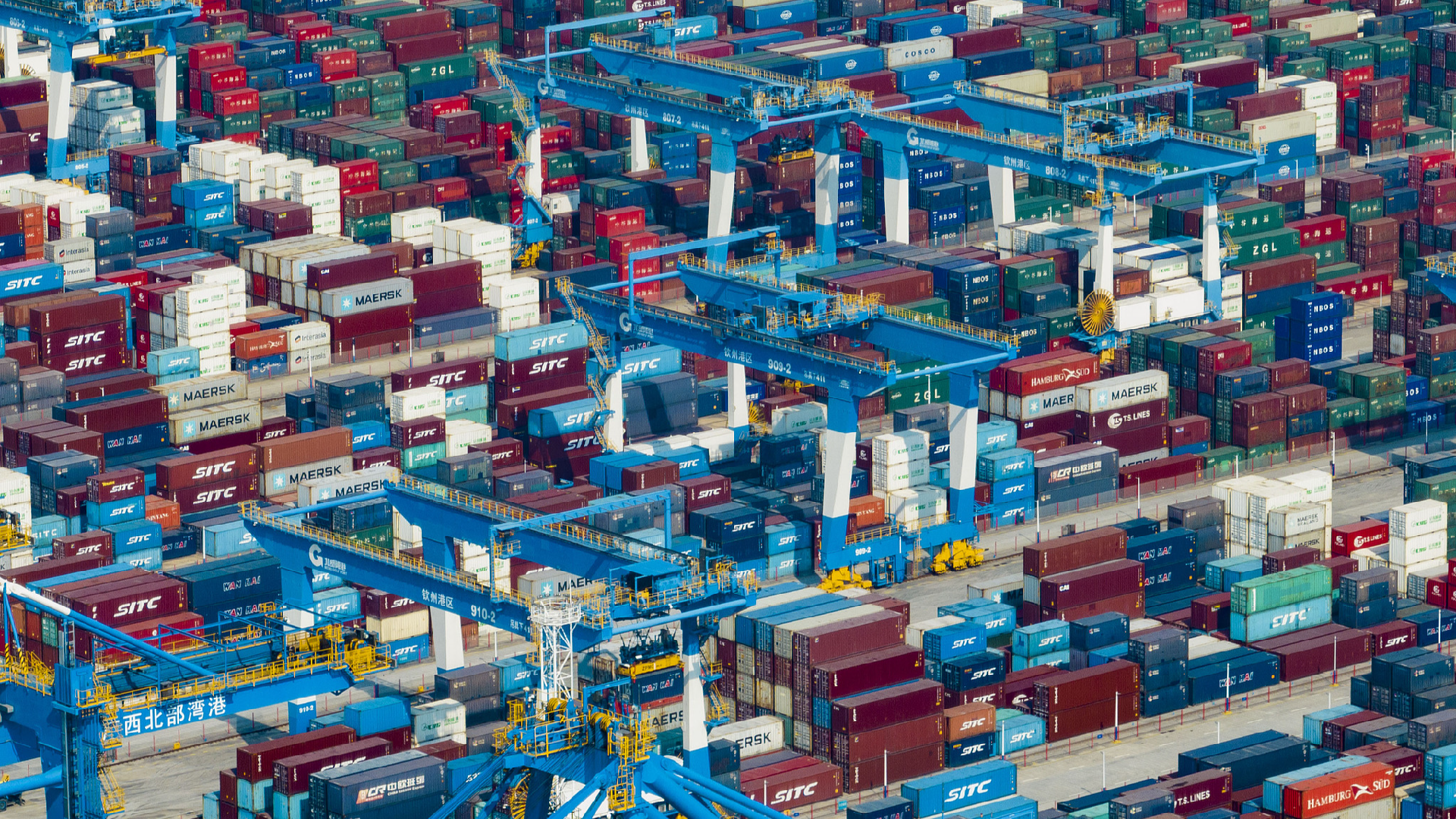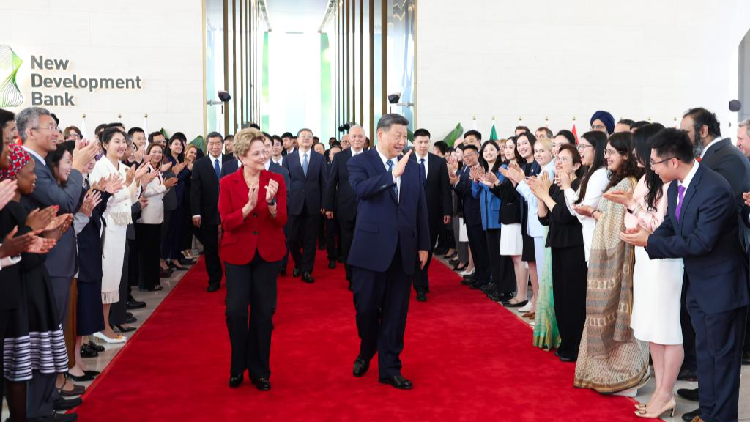What ASEAN Contributes Globally in the 'Intelligent Age'
Explore what ASEAN has to offer the global landscape in the 'Intelligent Age.' This article delves into the region's unique contributions, innovations, and strategic advantages that position it prominently on the world stage.

Three years ago, during the COVID-19 pandemic, we discussed the potential of the Association of Southeast Asian Nations (ASEAN) for fostering inclusive growth and prosperity in a post-pandemic world.
Today, the global situation has changed dramatically, grappling with geopolitical tensions, climate change, a widening digital divide, and the rapid evolution of artificial intelligence.
Despite these challenges, ASEAN's resilience and promise remain unwavering.
For three consecutive years, ASEAN has been among the top destinations for foreign direct investment, with investments reaching a record $230 billion in 2023, even as global investment trends declined.
Projected trade growth in ASEAN over the next decade stands at $1.2 trillion, with exports anticipated to rise by nearly 90 percent, contrasting with a global trade growth rate of under 30 percent.
Macroeconomic data indicates that ASEAN's GDP has increased to $3.8 trillion in 2023 from $2.5 trillion in 2015, while regional trade has grown from $2.3 trillion to $3.5 trillion in that same timeframe. These achievements have significantly boosted per capita income.
ASEAN is on track to become the world's fourth-largest economy by 2030, capitalizing on opportunities within the Intelligent Age—a period characterized by advancements in AI, quantum computing, and blockchain—to move beyond traditional growth models and encourage inclusive prosperity.
However, success hinges on the integration of digital, environmental, social, and geopolitical intelligence. Given ASEAN's trajectory, the region is uniquely poised to lead and serve as an example for navigating this transformation.
**Leading in AI-driven transformation**
ASEAN's transition into the Intelligent Age marks a progression from a fast follower to a leader in global innovation. Tools like AI and other advanced technologies present unique opportunities for the region to create and implement customized solutions to its specific socio-economic issues.
Digital trade, which includes e-commerce, digital services, and data flows, serves as a growth engine for ASEAN's economy. The region boasts a rapidly expanding base of 460 million digital consumers, stimulating entrepreneurship, job creation, and broader business prospects.
The e-Conomy SEA 2024 report by Google, Temasek, and Bain & Company noted that ASEAN's digital economy is achieving profitability, with projections indicating growth from $4 billion in 2022 to $11 billion in 2024.
This swift development highlights ASEAN's agility and ability to convert innovation into concrete economic success, particularly in sectors such as e-commerce, mobile gaming, and generative AI, which are significantly reshaping its economy.
To maintain this upward trajectory, ASEAN must focus on ethical AI practices, facilitate cross-border data flows, and enhance cybersecurity efforts. The anticipated ASEAN Digital Economy Framework Agreement supports these goals and is complemented by the WEF's ASEAN Digital Economy Agreement Leadership project and capacity-building initiatives.
Public-private partnerships are essential for promoting digital transformation while addressing associated risks—this is a central focus of the WEF's Centre for the Fourth Industrial Revolution Network.
ASEAN's progress is also tied to the ASEAN Digital Integration Framework and national AI programs, including Malaysia's National AI Office, Singapore's Smart Nation Initiative, and Vietnam's Build for the AI Future Initiative, which collectively aim to advance innovation, AI adoption, and digital connectivity.
While the digital economy is crucial for ASEAN's future, responsible governance and forward-looking policies are necessary to ensure sustainable, inclusive growth.
**Amplifying ASEAN's voice for climate and nature**
Although ASEAN occupies only three percent of the Earth's surface, it is home to four biodiversity hotspots, three mega-diverse countries, and crucial ecosystems that support both livelihoods and climate resilience. Its forests encompass 47 percent of the land, and the Coral Triangle—hosting 30 percent of the world’s reefs and over 75 percent of known coral species—stands as a vital marine biodiversity area.
However, the ASEAN Biodiversity Outlook 2023 pointed out alarming threats, including the projection that plastic waste will surpass marine life by 2050, putting 99 percent of seabirds at risk of ingesting plastic.
ASEAN has responded with several initiatives, such as the ASEAN Centre for Biodiversity, the ASEAN Declaration on Plastic Circularity, and the Global Plastic Action Partnership. These efforts aim to integrate biodiversity into business agendas and collaboratively address pollution across member nations.
As the world’s fourth-largest energy consumer, ASEAN derives 83 percent of its energy mix from fossil fuels, and clean energy investments account for only two percent of global spending. Thus, there is an urgent need for ASEAN to enhance its efforts toward achieving various net-zero commitments.
Energy security and affordability remain critical priorities amid escalating geopolitical tensions, and environmental issues connected to energy use have become increasingly pressing. In 2023, an estimated 85 percent of Southeast Asia's population faced polluted air, far exceeding the acceptable limits recommended by the World Health Organization.
Facilitating clean energy transitions will require sound national strategies, support from the private sector, and international collaboration.
Key initiatives such as Just Energy Transition Partnerships and the Asia Zero Emission Community are vital, along with regional efforts aimed at developing a more integrated and resilient energy framework like the Laos-Thailand-Malaysia-Singapore Power Integration Project.
The World Economic Forum backs these initiatives through the ASEAN Leaders for Just Energy Transition platform, which promotes the use of renewable energy and equitable access.
Human progress in the Intelligent Age must be aligned with environmental responsibility and sustainability. Leveraging advancements in AI and big data can optimize resource management, improve climate resilience, and enable ASEAN to weave sustainability into its developmental fabric, allowing for economic growth while safeguarding environmental integrity for future generations.
**Navigating geo-economic complexities**
ASEAN embodies the concept of "unity in diversity," emphasizing centrality, consensus, and non-interference within its governance framework. This approach has fostered regional stability and integration despite differences, proving crucial during the pandemic, where coordinated efforts demonstrated ASEAN's collaborative strengths.
In the Intelligent Age, ASEAN's capacity to manage geopolitical complexities relies on a balanced approach between pragmatism and principled leadership. The ASEAN Outlook on the Indo-Pacific framework illustrates its commitment to diplomacy, multilateralism, and a rules-based order.
Addressing challenges such as the unrest in Myanmar, maritime disputes, and tensions between China and the US necessitates a strong dedication to dialogue and consensus-building. By harnessing economic influence and strategic partnerships, including the Regional Comprehensive Economic Partnership, ASEAN can reinforce its role as a stabilizing entity on the global stage.
As it moves towards the ASEAN Community Vision 2045, the region is positioned to take a leading role in shaping the Intelligent Age while providing a compelling model for addressing the complex global challenges of this transformative period. Under Malaysia's chairmanship in 2025, a focus on collective action, regional cohesion, and forward-thinking strategies will be pivotal.
The World Economic Forum 2025 Annual Meeting in Davos, Switzerland, themed "Collaboration for the Intelligent Age," is set to convene over 60 heads of state and government, along with 3,000 business leaders from some of the world's leading economies.
This significant gathering will serve as a platform for exploring critical global issues and, with a historic presence of ASEAN leaders contributing their priorities and visions for the region, ASEAN can showcase its leadership role in the Intelligent Age.
Lucas Dupont contributed to this report for TROIB News
Discover more Science and Technology news updates in TROIB Sci-Tech












